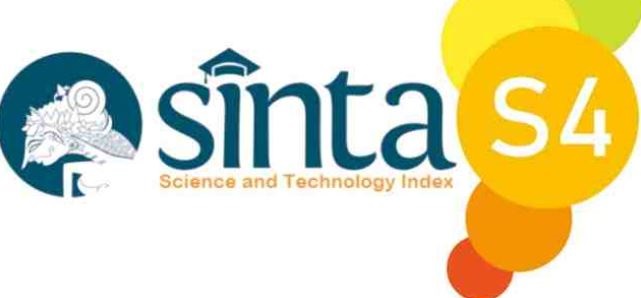Pengaruh Gaya Pengasuhan Autonomy dan Conformity Terhadap Perolehan Theory-of-Mind pada Anak Prasekolah di Sumatera Barat
 ),
), (1) Universitas Negeri Padang
 Corresponding Author
Corresponding Author
Copyright (c) 2020 Devi Rusli
DOI : https://doi.org/10.24036/rapun.v11i2.110496
Full Text:
 Language : Ind
Language : Ind
Abstract
Kasus bulliying (perundungan) kian marak terjadi pada anak-anak, hal ini menunjukkan kompetensi sosial anak dalam berempati (merasakan apa yang dirasakan orang lain) semakin rendah.Empati berhubungan dengan kemampuan anak memahami keadaaan mental orang lain (theory of mind) seperti pikiran, perasaan, motivasi orang lain. Penelitian ini bertujuan untuk mengetahui perkembangan ToM anak, gambaran pengasuhan anak dan menguji apakah gaya pengasuhan orangtua mempengaruhi perolehan ToM pada anak prasekolah. Perolehan ToM diukur dengan menggunakan skala ToM yang dikembangkan oleh Wellman dan Liu yang telah diadaptasi oleh Kuntoro, dkk, dan gaya pengasuhan orangtua diukur dengan skala Vinden yang telah dimodifikasi oleh O’Reily dan Peterson. Skala ToM diberikan pada 125 anak (56 laki-laki, 69 perempuan), usia 3-5 tahun/36-71 bulan (M = 58.91, SD = 8.190), dan kuesioner pengasuhan diisi oleh orangtua masing-masing anak. Hasil penelitian menunjukkan bahwa urutan perkembangan ToM anak prasekolah di Sumatera Barat sama dengan ToM anak-anak di negara barat. Gaya pengasuhan orangtua juga sama dengan anak-anak di negara barat (autonomy). Gaya pengasuhan (autonomy dan conformity) tidak berpengaruh secara signifikan terhadap perolehan ToM, dengan R2 = .015, p > 0.05. Namun gaya pengasuhan conformity berpengaruh secara negatif terhadap perolehan konsep knowledge acces (KA) (β = -0.142, p < 0.05), sedangkan gaya pengasuhan autonomy tidak berpengaruh terhadap perolehan kelima konsep ToM.
Keywords
References
Astington, J. W., Jenkins, J. M. (1995). Theory of mind development and social understanding. Cognition and Emotion. Vol 9, 151-165
Baumrind, D. (1972). An exploratory study of socialization effects on black children: some black – white comparisons. Child Development, 43 (1), 261 – 267.
Baumrind, D. (1991). The influence of parenting style on adolescent competence and substance use. Journal of Early Adolescence. 11(56), 56-95.
Cutting, A. L., & Dunn, J. (1999). Theory of mind, emotion understanding, language, and family background: Individual differences and inter relation. Child Development, vol. 7, 4, 853-863.
Flavell, J. H., and Miller, P. H. (1998). Social cognition. In D. Kuhn and R. S. Siegler (Eds.), Handbook of child psychology. Vol. 2: Cognition, perception, and language. 5th ed. (pp. 851–898). New York: Wiley
Foote, R. C., & Holmes-Lonergan, H. A. (2003). Sibling conflict and theory of mind. British Journal of Developmental Psychology, 21, 45–58.
Kuntoro, I.A, Saraswati, L, Peterson, C, & Slaughter. V (2013). Micro-cultural influences on theory of mind development: A comparative study of middleclass and pemulung children in Jakarta, Indonesia. International Journal of Behavioral Development.
Kuntoro, I. A., Peterson, C. C., & Slaughter, V. (2017). Culture, parenting, and children’s theory of mind development in Indonesia. Journal of Cross-Cultural Psychology. DOI: 10.1177/0022022117725404.
Lalonde, C., & Chandler, M. (1995). False belief understanding goes to school On the social-emotional consequences of coming early or late to a first theory of mind. Cognition and Emotion, 9.
Leslie, A., & Thaiss, L. (1992). Domain specificity in conceptual development: Neuro-psychological evidence from autism. Cognition, 43, 225–251.
O’Reilly, J & Peterson, C. C. (2014). Theory of mind at home: Lingking authoritative and authoritarian parenting styles to children’s social understanding. Early Child Development and Care. 184(12), 1935-1947.
Pears, k. J., & Moses, L. J. (2003). Demographics, parenting and theory of mind in preschool children. Social Development (pp. 12; 1-20). Oxford UK:
Peterson, C. C., Wellman, H. M., & Liu, D. (2005). Steps in theory-of-mind development for children with deafness or autism. Child Development, 76, 502-517
Ruffman, T., Perner, J., Naito, M., Parkin, L., & Clements, W. A. (1998). Older (but not younger) siblings facilitate false belief understanding. Developmental Psychology, 34, 161–174.
Ruffman, T., Perner, J., & Parkin, L. (1999). How parenting style affects false belief understanding. Social Development, 8, 395–411
Rusli, D., Kuntoro, I. A., Handayani, E., Nurmina, & Arben, A. (2020). The influence of individualism and collectivism parenting on theory-of-mind acquisition in children aged 3 – 5. International Journal of Psychosocial Rehabilitation, 24(9), 30533063.https://doi.org/10.37200/IJPR/V24I9/PR290333
Scholl, B. J., & Leslie, A. M. (2001). Minds, modules, and meta-analysis. Child Development, 72, 696–701
Shahaeian, A., Peterson, C., Slaughter, V., & Wellman, H. (2011). Culture and the sequence of steps in theory of mind development. Developmental Psychology, 47, 1239-1247
Slaughter, V., Dennis, M. J., & Pritchard, M. (2002). Theory of mind and peer acceptance in preschool children. British Journal of Developmental Psychology. Volume 20: 545-564.
Slaughter, V., Peterson, C., & Mackintosh, E. (2007). Mind what mother says: Narrative input and theory of mind in typical children and those on the autism spectrum. Child Development, 78, 839–858.
Vinden, P. G. (2001). Parenting attitudes and children’s understanding of mind a comparison of Korean American and Anglo American families. Cognitive Development. Volume 16 : 793-809.
Wellman, H. M., Cross, D., & Watson, J. (2001). Meta-analysis of theory of mind development: The truth about false belief. Child Development, 75, 655-684.
Wellman, H. M., & Liu, D. (2004). Scalling of theory of mind tasks. Child Development, 75(2), 523-541.
Wimmer, H., & Perner, J. (1983). Beliefs about beliefs: Representation and constraining function of wrong beliefs in young children’s understanding of deception. Cognition. Volume 13 : 103-128.
Wiswanti, I. U., Kuntoro, I. A., Ar Rizqi, N. P., & Halim, L. (2020). Pola asuh dan budaya: Studi komparatif antara masyarakat urban dan masyarakat rural Indonesia. Jurnal Psikologi Sosial, 18(3), 211–223. https://doi.org/10.7454/jps.2020.21
 Article Metrics
Article Metrics
 Abstract Views : 1161 times
Abstract Views : 1161 times
 PDF Downloaded : 445 times
PDF Downloaded : 445 times
Refbacks
- There are currently no refbacks.
Copyright (c) 2020 Devi Rusli

This work is licensed under a Creative Commons Attribution-NonCommercial 4.0 International License.






